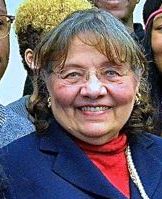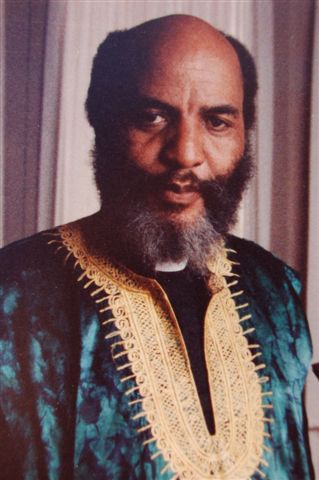
The civil rights movement was a social movement and campaign in the United States from 1954 to 1968 that aimed to abolish legalized racial segregation, discrimination, and disenfranchisement in the country, which was most commonly employed against African Americans. The movement had origins in the Reconstruction era during the late 19th century, and had modern roots in the 1940s. After years of direct actions and grassroots protests, the movement made its largest legislative and judicial gains during the 1960s. The movement's major nonviolent resistance and civil disobedience campaigns eventually secured new protections in federal law for the civil rights of all Americans.

Bayard Rustin was an American political activist, a prominent leader in social movements for civil rights, socialism, nonviolence, and gay rights. Rustin was the principal organizer of the March on Washington for Jobs and Freedom in 1963.

James Morris Lawson Jr. was an American activist and university professor. He was a leading theoretician and tactician of nonviolence within the Civil Rights Movement. During the 1960s, he served as a mentor to the Nashville Student Movement and the Student Nonviolent Coordinating Committee. He was expelled from Vanderbilt University for his civil rights activism in 1960, and later served as a pastor in Los Angeles for 25 years.

Diane Judith Nash is an American civil rights activist, and a leader and strategist of the student wing of the Civil Rights Movement.

The Big Six—Martin Luther King Jr., James Farmer, John Lewis, A. Philip Randolph, Roy Wilkins and Whitney Young—were the leaders of six prominent civil rights organizations who were instrumental in the organization of the March on Washington for Jobs and Freedom in 1963, at the height of the Civil Rights Movement in the United States.

The Nashville sit-ins, which lasted from February 13 to May 10, 1960, were part of a protest to end racial segregation at lunch counters in downtown Nashville, Tennessee. The sit-in campaign, coordinated by the Nashville Student Movement and the Nashville Christian Leadership Council, was notable for its early success and its emphasis on disciplined nonviolence. It was part of a broader sit-in movement that spread across the southern United States in the wake of the Greensboro sit-ins in North Carolina.

James Luther Bevel was an American minister, leader of the 1960s Civil Rights Movement in the United States, and convicted child molester. As a member of the Southern Christian Leadership Conference (SCLC), and then as its director of direct action and nonviolent education, Bevel initiated, strategized, and developed SCLC's three major successes of the era: the 1963 Birmingham Children's Crusade, the 1965 Selma voting rights movement, and the 1966 Chicago open housing movement. He suggested that SCLC call for and join a March on Washington in 1963 and strategized the 1965 Selma to Montgomery marches which contributed to Congressional passage of the 1965 Voting Rights Act.

The Equality Ride is a periodic LGBT rights bus tour made for young adults and sponsored by Soulforce, a national LGBT nonprofit organization. They seek to debate LGBT issues with students at conservative Christian colleges and military academies and secular universities.
The Albany Movement was a desegregation and voters' rights coalition formed in Albany, Georgia, in November 1961. This movement was founded by local black leaders and ministers, as well as members of the Student Nonviolent Coordinating Committee (SNCC) and the National Association for the Advancement of Colored People (NAACP). The groups were assisted by Martin Luther King Jr. and the Southern Christian Leadership Conference (SCLC). It was meant to draw attention to the brutally enforced racial segregation practices in Southwest Georgia. However, many leaders in SNCC were fundamentally opposed to King and the SCLC's involvement. They felt that a more democratic approach aimed at long-term solutions was preferable for the area other than King's tendency towards short-term, authoritatively-run organizing.

Cordy Tindell Vivian was an American minister, author, and close friend and lieutenant of Martin Luther King Jr. during the civil rights movement. He resided in Atlanta, Georgia, and founded the C. T. Vivian Leadership Institute, Inc. He was a member of the Alpha Phi Alpha fraternity.
Joseph Harrison Jackson was an American pastor and the longest serving President of the National Baptist Convention, USA, Inc.

The Freedom Singers originated as a quartet formed in 1962 at Albany State College in Albany, Georgia. After folk singer Pete Seeger witnessed the power of their congregational-style of singing, which fused black Baptist a cappella church singing with popular music at the time, as well as protest songs and chants. Churches were considered to be safe spaces, acting as a shelter from the racism of the outside world. As a result, churches paved the way for the creation of the freedom song. After witnessing the influence of freedom songs, Seeger suggested The Freedom Singers as a touring group to the SNCC executive secretary James Forman as a way to fuel future campaigns. Intrinsically connected, their performances drew aid and support to the Student Nonviolent Coordinating Committee (SNCC) during the emerging civil rights movement. As a result, communal song became essential to empowering and educating audiences about civil rights issues and a powerful social weapon of influence in the fight against Jim Crow segregation. Their most notable song “We Shall Not Be Moved” translated from the original Freedom Singers to the second generation of Freedom Singers, and finally to the Freedom Voices, made up of field secretaries from SNCC. "We Shall Not Be Moved" is considered by many to be the "face" of the Civil Rights movement. Rutha Mae Harris, a former freedom singer, speculated that without the music force of broad communal singing, the civil rights movement may not have resonated beyond the struggles of the Jim Crow South. Since the Freedom Singers were so successful, a second group was created called the Freedom Voices.

Bernard LafayetteJr. is an American civil rights activist and organizer, who was a leader in the Civil Rights Movement. He played a leading role in early organizing of the Selma Voting Rights Movement; was a member of the Nashville Student Movement; and worked closely throughout the 1960s movements with groups such as the Student Nonviolent Coordinating Committee (SNCC), the Southern Christian Leadership Conference (SCLC), and the American Friends Service Committee.
Glenn Smiley was a white civil rights consultant and leader. He closely studied the doctrine of Mahatma Gandhi and became convinced that racism and segregation were most likely to be overcome without the use of violence, and began studying and teaching peaceful tactics. As an employee of the Fellowship of Reconciliation (FOR), he visited Martin Luther King Jr. in Montgomery, Alabama in 1956 during the Montgomery bus boycott where Smiley advised King and his associates on nonviolent tactics, and was able to convince King that nonviolence was a feasible solution to racial tension. Smiley, together with Bayard Rustin and others, helped convince King and his associates that complete nonviolence and nonviolent direct action were the most effective methods and tools to use during protest. After the Civil Rights Movement, Smiley continued to employ nonviolence and worked for several organizations promoting peace in South American countries. Just three years before his 1993 death, Smiley opened the King Center in Los Angeles.

Charles Melvin Sherrod was an American minister and civil rights activist. During the civil rights movement, Sherrod helped found the Albany Movement while serving as field secretary for southwest Georgia for the Student Nonviolent Coordinating Committee. He also participated in the Selma Voting Rights Movement and in many other campaigns of the civil rights movement of that era.

The Nashville Student Movement was an organization that challenged racial segregation in Nashville, Tennessee, during the Civil Rights Movement. It was created during workshops in nonviolence taught by James Lawson at the Clark Memorial United Methodist Church. The students from this organization initiated the Nashville sit-ins in 1960. They were regarded as the most disciplined and effective of the student movement participants during 1960. The Nashville Student Movement was key in establishing leadership in the Freedom Riders.
Stone Johnson was an African-American activist in the Civil Rights Movement. A railway worker and union representative by trade, he got involved in the civil rights movement in Birmingham, Alabama in the mid 1950s, working with Fred Shuttlesworth. He started a civil rights organization called the Civil Rights Guards that protected homes and business involved in the movement, usually while armed.

The March trilogy is an autobiographical black and white graphic novel trilogy about the civil rights movement, told through the perspective of civil rights leader and U.S. Congressman John Lewis. The series is written by Lewis and Andrew Aydin, and illustrated and lettered by Nate Powell. The first volume, March: Book One, was published in August 2013, by Top Shelf Productions. and the second volume, March: Book Two, was published in January 2015, with both volumes receiving positive reviews. March: Book Three was published in August 2016 along with a slipcase edition of the March trilogy.
Civil rights in the United States include noted legislation and organized efforts to abolish public and private acts of racial discrimination against Native Americans, African Americans, Asians, Latin Americans, women, the homeless, minority religions, and other groups. The history of the United States has been marked by a continuous struggle for civil rights. The institution of slavery, established during the colonial era, persisted until the American Civil War, when the Emancipation Proclamation and the 13th Amendment abolished it. Despite this, African Americans continued to face systemic racism through de jure and de facto segregation, enforced by Jim Crow laws and societal practices. Early civil rights efforts, such as those by Frederick Douglass and the women's suffrage movement, laid the groundwork for future activism.
Dion Tyrone Diamond is an American civil rights activist.














